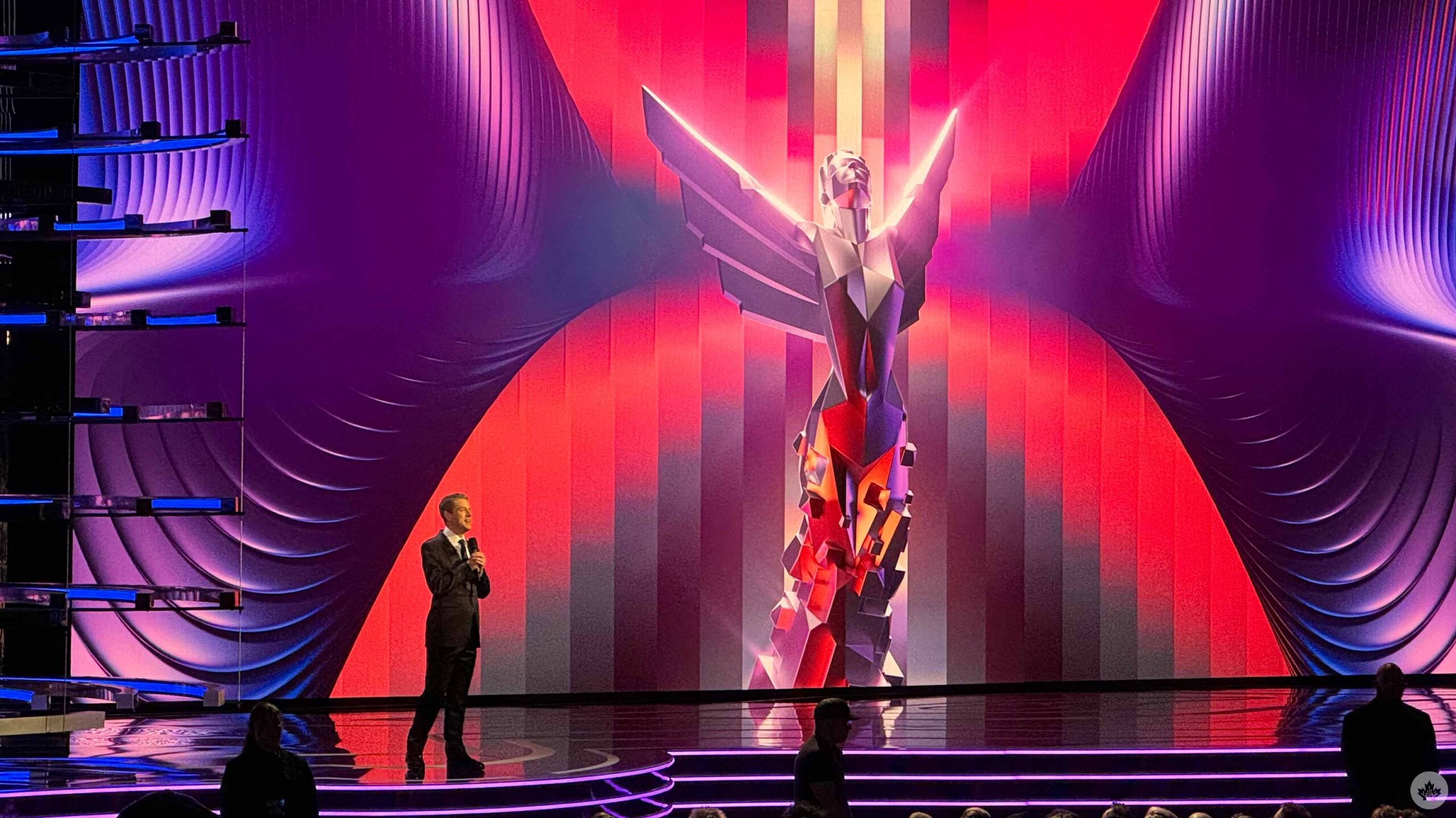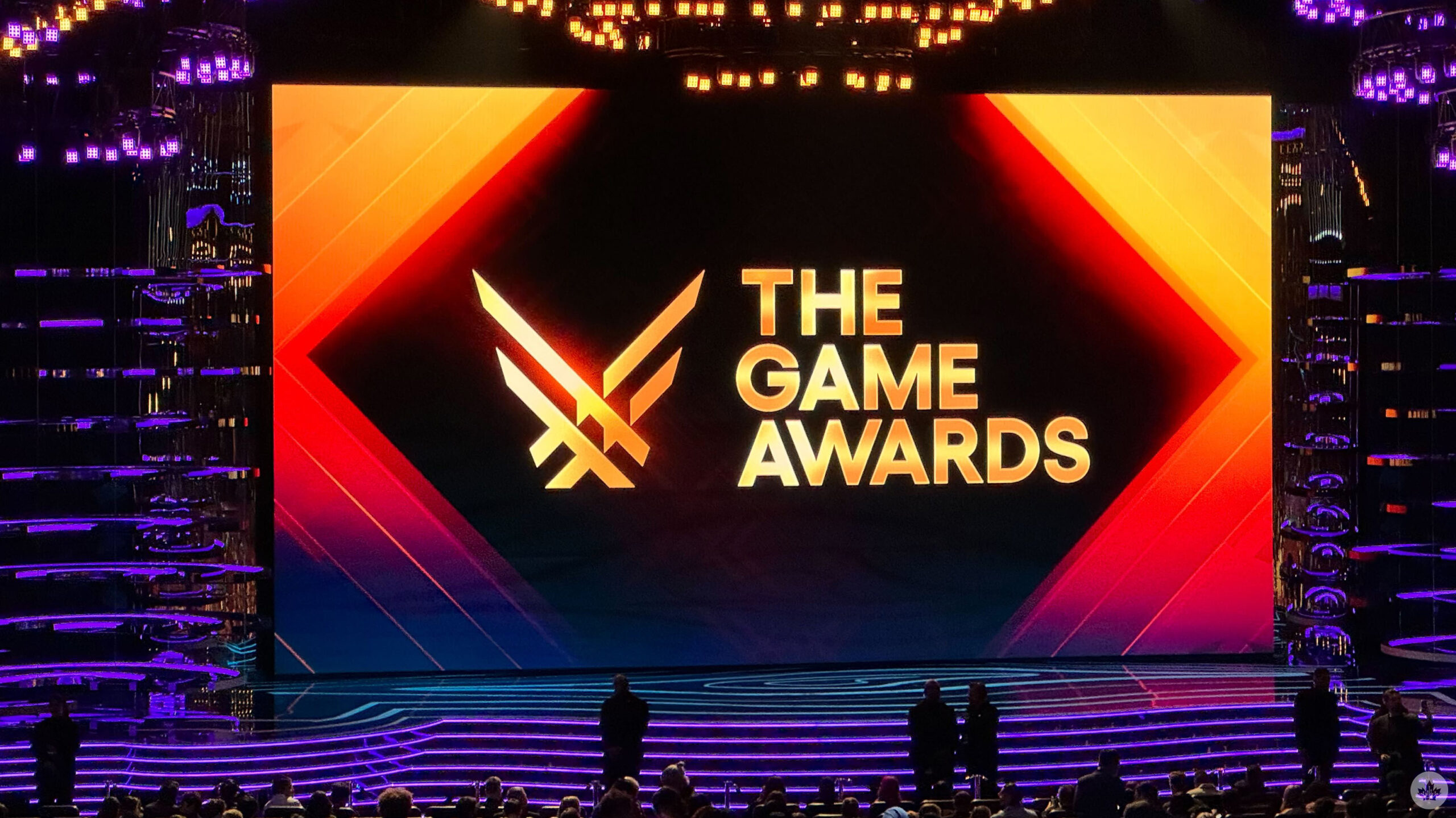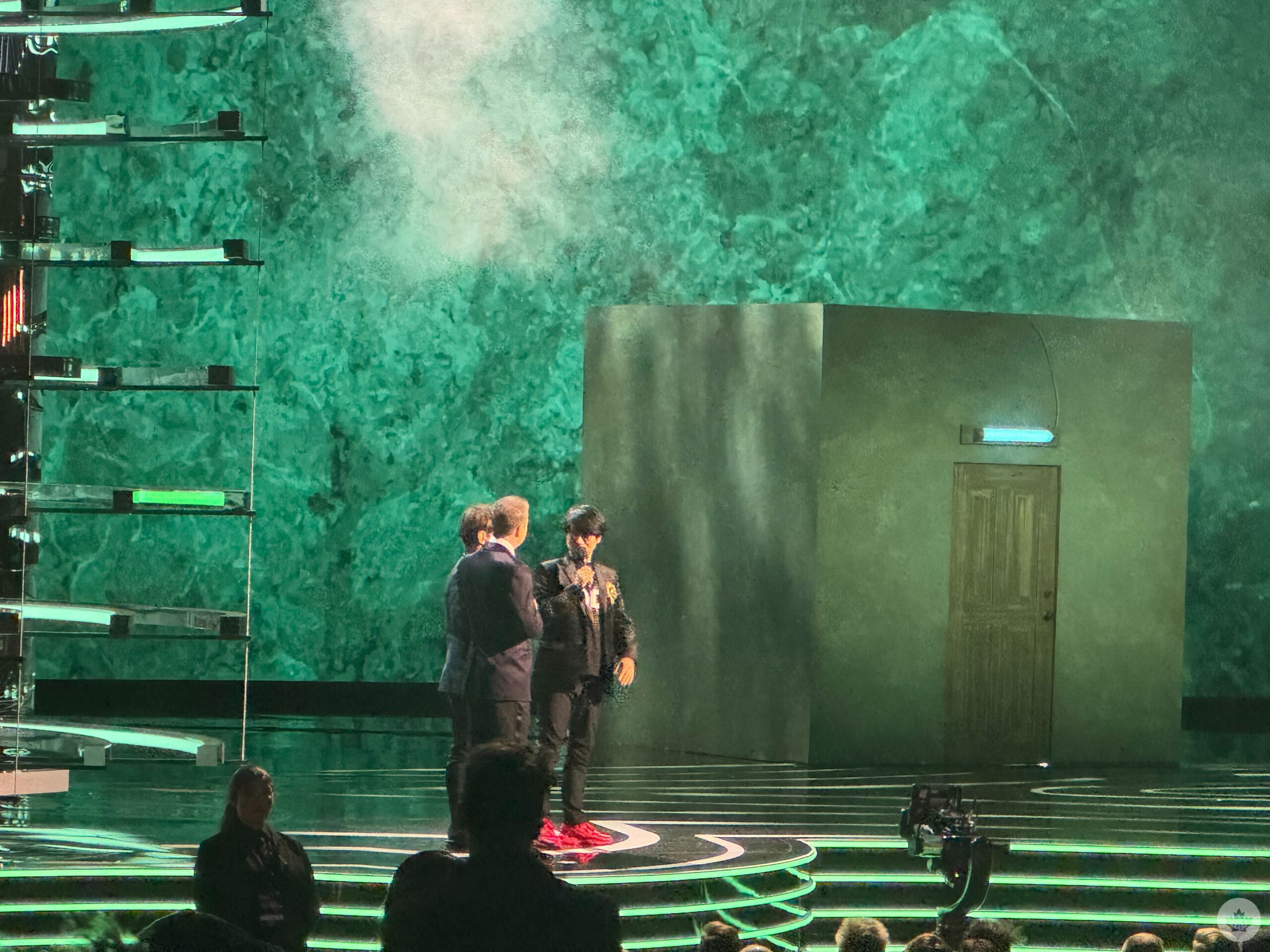
Last week, The 2023 Game Awards ceremony was held in Los Angeles, hosted once again by Canada’s Geoff Keighley.
There were a lot of notable moments out of the so-called “biggest night in gaming” — Larian Studios’ Baldur’s Gate 3 took home the coveted ‘Game of the Year,’ Matthew McConaughey showed up to announce a role in Exodus, an ambitious new sci-fi RPG from some of the Canadians behind Star Wars: Knights of the Old Republic and the main theme Final Fantasy VII Rebirth was debuted live in a beautiful performance from The Greatest Showman‘s Loren Allred.
And yet, the larger narrative surrounding the show is one of bitter disappointment. Over the past several days, many have taken to social media, online forums and editorial sections to bemoan how little The Game Awards actually emphasized the awards themselves. As noted by several in attendance, winners were given a paltry 30 seconds for their acceptance speeches before a teleprompter asked them “please wrap it up” and the usual “exit stage left” music cues began.
 Clearly, this was an attempt to address God of War Ragnarök star Christopher Judge’s nearly 10-minute-long impassioned acceptance speech for ‘Best Performance’ last year. Surely, though, there’s a happy medium between that overlong period and a measly 30 seconds? That lack of time for developers felt particularly unsavoury when some of the winners were actually trying to make touching tributes during them. Take Neil Newbon, who won Best Performance for his role as the flamboyant vampire Astarion in Baldur’s Gate 3 — his tearful words of gratitude to fans who reached out to say they “were seen and represented” by the game were quickly drowned out by the “wrap it up” music. Worse still — Swen Vincke, Larian’s founder and creative director, was getting shooed off stage as he was attempting to honour BG3‘s late cinematic animation lead, Jim Southworth.
Clearly, this was an attempt to address God of War Ragnarök star Christopher Judge’s nearly 10-minute-long impassioned acceptance speech for ‘Best Performance’ last year. Surely, though, there’s a happy medium between that overlong period and a measly 30 seconds? That lack of time for developers felt particularly unsavoury when some of the winners were actually trying to make touching tributes during them. Take Neil Newbon, who won Best Performance for his role as the flamboyant vampire Astarion in Baldur’s Gate 3 — his tearful words of gratitude to fans who reached out to say they “were seen and represented” by the game were quickly drowned out by the “wrap it up” music. Worse still — Swen Vincke, Larian’s founder and creative director, was getting shooed off stage as he was attempting to honour BG3‘s late cinematic animation lead, Jim Southworth.
Why in the hell weren’t artists even allowed to make such meaningful speeches? Famous speeches of shows past, like That Dragon, Cancer‘s Ryan Green’s beautiful tribute to his late son, wouldn’t even have been able to happen this year. At the same time, The Game Awards allotted far more time for the requisite celebrity appearances, like Canadian Shang-Chi star Simu Liu, who got several minutes to make awkward jokes about his torn ACL, or Twisted Metal lead Anthony Mackie, who had some back-and-forths with members of the audience. Even Game of the Year itself was presented by Timothée Chalamet, star of Dune and the upcoming Wonka, instead of, you know, an actual developer. At previous shows, directors of previous GOTY winners, like Neil Druckmann (The Last of Us Part II) or Josef Fares (It Takes Two), would present, which was a nice passing of the torch. In theory, then, this year’s GOTY presenter should have been Hidetaka Miyazaki (director of 2022 GOTY winner Elden Ring), but even if he wasn’t available, couldn’t Keighley have gotten any other developer?
Meanwhile, Keighley dedicated ample time to two of his favourite things: the Muppets and Metal Gear creator Hideo Kojima. The former’s Gonzo featured in an awkward side-stage skit with Keighley, while the latter got several minutes to talk vaguely about his mysterious new Xbox game, OD, alongside Oscar-winning director Jordan Peele. Understandably, developers took issue with Keighley giving his favs plenty of time while everyone else got breadcrumbs.
 In particular, the winners in several categories, including Innovation in Accessibility and Best Indie Game, were announced by Keighley in rapid-fire succession without any of their respective developers even getting a chance to accept them on-stage. (Shoutout to IGN and GameSpot, at least, for two wonderful journalistic pieces in which they gave each of these developers, including Canada’s Sabotage for Best Indie winner Sea of Stars, a chance to share what they would have said if granted the time.) Of course, all awards are worthwhile, but accessibility and indies, in particular, are such an important part of this industry, so it’s absolutely disgraceful to give them such treatment.
In particular, the winners in several categories, including Innovation in Accessibility and Best Indie Game, were announced by Keighley in rapid-fire succession without any of their respective developers even getting a chance to accept them on-stage. (Shoutout to IGN and GameSpot, at least, for two wonderful journalistic pieces in which they gave each of these developers, including Canada’s Sabotage for Best Indie winner Sea of Stars, a chance to share what they would have said if granted the time.) Of course, all awards are worthwhile, but accessibility and indies, in particular, are such an important part of this industry, so it’s absolutely disgraceful to give them such treatment.
Meanwhile, game makers felt further disrespected because the show didn’t even address the massive elephant in the room — the string of layoffs that have plagued the industry. Indeed, despite many proclaiming this to be “one of the best years for games ever” (which is certainly true from a critical reception perspective), it’s been indisputably awful for developers, nearly 10,000 of whom have lost their jobs this year alone. Therefore, many had implored Keighley to make some sort of acknowledgement of these layoffs. Members of The Game Awards’ Future Class — up-and-comers who represent the future of the industry — also called for the show to address the genocide in Palestine. Naturally, The Game Awards did neither.
Game workers: *tries to thank fellow game devs or tries to talk about inclusion and representation meaning so much in games*
The Game Awards: https://t.co/4mD5yImeLW
— Monika Lee (@MnikaLee) December 8, 2023
Of course, there are clear reasons as to why Keighley did — or didn’t — do all of the aforementioned things. No doubt he was afraid of upsetting any sponsors who wanted an entertaining and drama-free show. We saw exactly this in 2021 when he offered a limp pushback against “abuse, harassment and predatory practices” without mentioning any of the companies — namely, Activision Blizzard — who had come under fire for them.) The celebrities and ads, meanwhile, are obviously another way to help keep the show running. And clearly, they’re successful in doing so; Keighley announced this week that viewership of this year’s show hit a record-breaking 118 million.
All of this adds only more fuel to the fire for people who have never liked The Game Awards, and I certainly understand that perspective. It’s definitely more akin to, say, the MTV Video Music Awards than something more “prestigious” like the Oscars. But I also don’t really know what the alternative would be. Sure, the annual D.I.C.E. Awards are much more focused on games industry awards recognition, but very few people watch them. While it would be great if audiences shifted to that en masse, it’s just unrealistic to imagine that happening.
This year’s The Game Awards is an embarrassing indictment of a segment of the industry desperate for validation via star power with little respect for the devs it’s supposedly honoring.
— Josh Sawyer (@jesawyer) December 8, 2023
Therefore, as corporate as The Game Awards can feel, I at least appreciate its potential to give all kinds of games — especially those from smaller creators — a massive global spotlight. The show has never struck a particularly strong balance between ads and awards, but there’s always potential to improve. Am I optimistic that will happen? Probably not, considering Keighley hasn’t responded to any of the criticism outside of a single tweet post acknowledging winners’ lack of speech time. But for now, let’s hope that next year’s show at least pays a bit more respect to the talented people who make the games we love.
And hey, let’s not rely solely on The Game Awards. If you loved a game this year, why not reach out to the developer directly? Tag them on social media, create fan art, spread the word about their games — there’s so much you can do. While we can only hope Keighley will improve The Game Awards, we can still honour the developers in our own way.
MobileSyrup may earn a commission from purchases made via our links, which helps fund the journalism we provide free on our website. These links do not influence our editorial content. Support us here.


